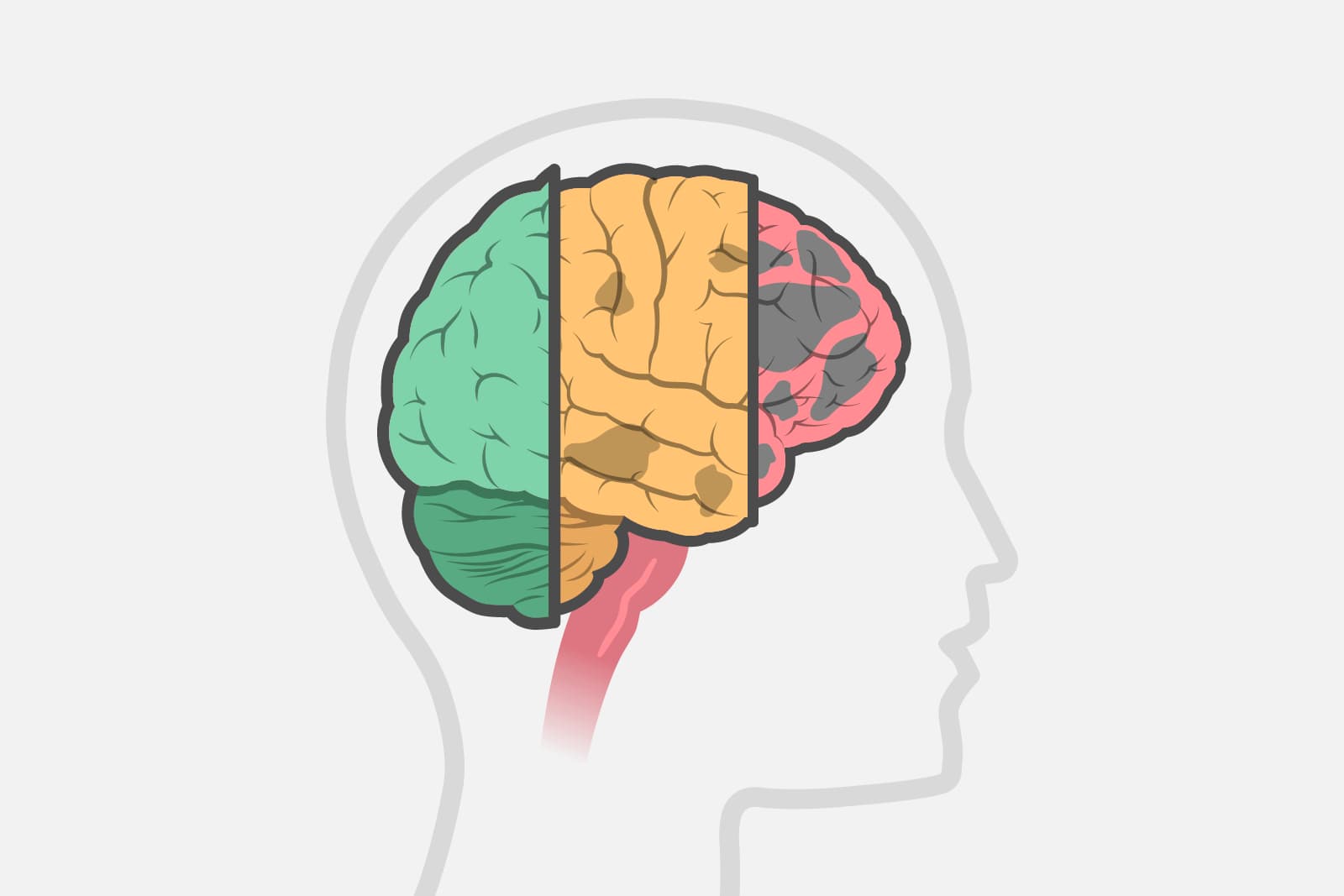Stages of Dementia

Lesson Outline
The changes to the brain that result in the signs and symptoms of dementia can be described in three stages: mild, moderate, and severe. These are sometimes also referred to as early-, middle- and late- or advanced stages.
People in the mild or early stage of dementia may notice subtle changes to their memory or thinking skills. They can do most of the things that they are required to do day-to-day from a functional point of view, but they're not able to live independently without the help of others.
During the moderate stage of dementia, the person will require more help with the Instrumental Activities of Daily Living (IADL). These are the things a person does every day to take care of themselves and their home, such as:
- using the telephone, including answering and calling others
- shopping for groceries on their own
- planning, heating, and serving their meals
- managing medications, including refilling them when needed and taking them correctly
- cleaning their house or apartment
- getting around on their own, either by car, taxi, or public transportation; or on foot
- managing money and paying bills
In general, in the moderate stage, a person's ability to complete the basic Activities of Daily Living (ADL), which are essential self-care tasks, such as bathing, dressing, eating by one's self, and moving around their house or apartment independently, are still intact.
In the severe stage, many areas of the brain are affected, and a person's level of function both cognitively and functionally becomes much worse. A person's care needs are very high at this stage, with issues such as incontinence and changes in mood and behaviours creating challenges for many caregivers. In the most advanced stages, eating and swallowing problems often lead to complications such as malnutrition, weakness, or aspiration pneumonia.
It's important to have an advanced care plan in place to help guide care decisions that are aligned with what the person with dementia would want when they are no longer capable of making independent decisions.
Learn the answers to the following questions:
What are the stages of dementia?
What are the differences between the stages?
Lesson Resources
Here are some other resources about this topic that you may find helpful after completing this lesson.
Speak Up Canada
The Canadian Hospice Palliative Care Association provides free tools and resources to help individuals and families discuss Advance Care Planning. Use their interactive online workbooks or download a fillable or printable version to start making your plan.
Visit WebsiteThe Stages of Dementia
In this 45-minute video our experts review the early, middle and lates stages of dementia as well as the global deterioration scale or GDS.
Watch VideoConsent, Capacity, and Care Planning
In this 50-minute video, our experts discuss how to help persons with dementia plan for the future including the importance of the Power of Attorney, substitute decision making and how dementia can affect a person's capacity to make decisions.
Watch VideoPalliative Care and End-of-Life Planning
In this 45-minute video, our experts discuss what to expect in the final stages of dementia. Listen to our experts respond to viewer questions.
Watch VideoEnd-of-life Care: What Practical Information Should I Know
The Alzheimer Society of Canada website provides practical information about compassionate care benefits, government benefits after death and a checklist of important documents and questions.
Visit WebsiteSubscribe to our newsletter for new live events!